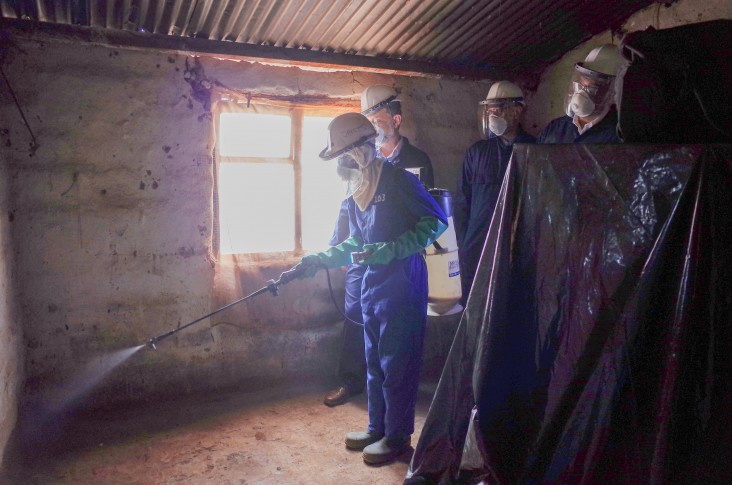Speeches Shim

Despite steady advances in the fight against malaria over the last decade, The World Health Organization’s 2018 World Malaria Report indicated that between 2017 and 2018, the global number of malaria deaths remained the same. In Zambia, thanks to the collaborative efforts of the U.S. Government and Zambia’s Ministry of Health, malaria deaths continue to decline. In order to maintain and accelerate progress, the U.S. President’s Malaria Initiative (PMI) VectorLink Project supports the planning and implementation of Indoor Residual Spraying (IRS) programs and other proven, life-saving vector-control initiatives.
VectorLink works closely with Zambia’s National Malaria Elimination Program (NMEP) to target 20 districts with IRS and seven districts with entomological monitoring and insecticide-treated nets (ITNs).
The overall project objectives are to:
● Ensure at least 85-90 percent of the targeted structures in the selected districts are sprayed;
● Provide IRS technical, managerial, and operational support to Zambia’s NMEP;
● Build IRS capacity at the national, provincial, and district levels;
● Monitor the impact of IRS operations, using selected entomological indicators; and
● Support the NMEP to coordinate, plan, and implement mass ITN campaigns.
|
JOURNEY TO SELF-RELIANCE
USAID believes every person, every community, and every country wants to be empowered to lead their own future. We support self-reliance by walking alongside our friends on their development journey, as evolving but enduring partners. As partners on this journey, we are empowering host-country governments and our partners to achieve locally-sustainable results, helping countries mobilize public and private revenues, strengthening local capacities, and accelerating enterprise-driven development. This approach fosters stable, resilient, and prosperous countries that are more self-reliant, and prioritizes enduring partnerships.

Comment
Make a general inquiry or suggest an improvement.